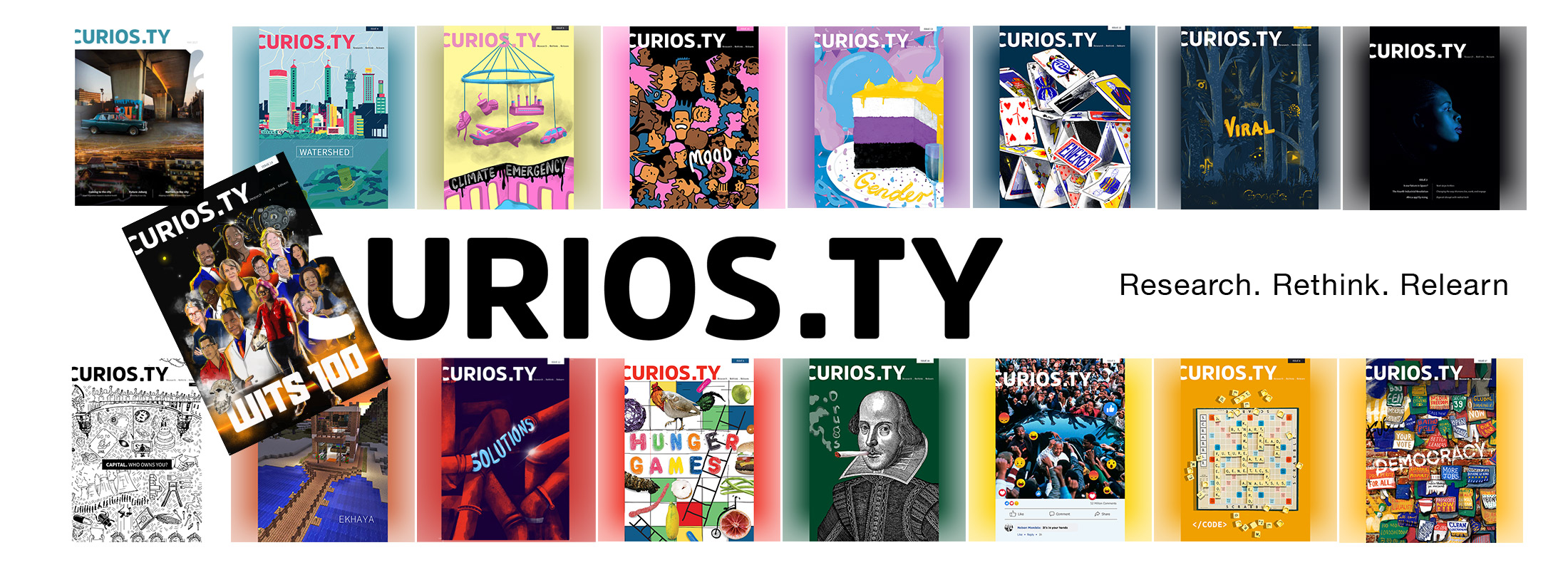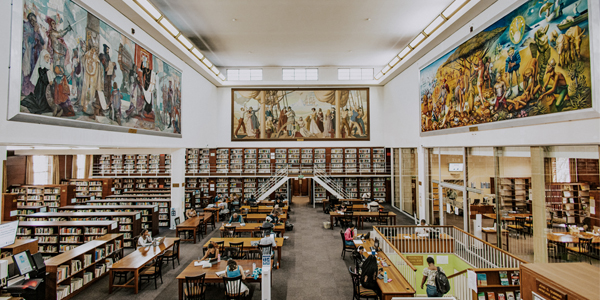
Democratising knowledge through open access
- Morgan Morris
More than half of SA’s academic publications appear in Open Access sources, with Wits University embracing this trend.

Are universities there to generate skilled employees to foster economic development, to serve the needs of the state and the economy, or perhaps to produce graduates who can question the world order and systems around them? Or all of these – however conflicted those objectives might appear?
In a country still coming to terms with its apartheid past, this role might be even more conflicted as institutions balance research needs – a traditional pillar of universities – with the call to help transform South African society.
“Currently we live in a time of extraordinary partisanship, a time of threats to democracy,” says Professor Ruksana Osman, Senior Deputy Vice-Chancellor: Academic at Wits. “So in essence a university’s role is about ensuring hope amid the inhumanity around us by staying true to our commitment to open expression and democracy, and then finding and keeping our pedagogic centre as a University.”
The Open Science movement is seeking a middle ground that satisfies all sides of that debate.
Open science for society
Open Access (OA) is an international movement that aims to provide free and open online access to academic publications and data. The movement traces its origins back to the 1990s and was in part a response to the rising costs of accessing academic research published in commercial academic journals. Since then, OA has grown exponentially in popularity, perhaps best illustrated in the ‘scientific globalism’ around the sharing of research on Covid-19.
OA publication has become more sophisticated, categorised (gold, green, hybrid, diamond, bronze,
etc.) according to levels, costing and point of access. Increasingly, OA champions have also made a direct link between Open Access and the good health of democracies. To strengthen this connection, South Africa is developing an open science policy that, among other aspects, looks at including civil society and social movements in the selection and collection development and management plans of academic libraries and archives.
“It’s widely accepted that any democracy needs an informed citizenry,” says Dr Daisy Selematsela, University Librarian at Wits. “To participate fully in public life, beyond just casting a ballot every five years, citizens need access to information and special collections that would encompass grey literature for informed decision making and the advancement of societal knowledge.”
Open access at Wits
Mirroring global trends, Open Access publication in South Africa has accelerated in recent years. As at January 2024, some 53% of academic publications are Open Access, according to Selematsela and Lazarus Matizirofa, Associate Director of Research, Scholarly Communication, Digital Services and Systems at Wits. In an Open Access presentation earlier this year, they reported that a total of 224 000 OA publications have racked up around 7.4 million citations.
OA publication has also taken off at Wits, a signatory to the Berlin Declaration on Open Access to Knowledge in the Sciences and Humanities, and the University is punching well above its weight. In 2023, for instance, although the University’s more than 28 000 OA publications fell short of the number of closed publications (approximately 36 000) they tallied 697 083 citations compared to 692 296 citations for articles published in closed journals. “We are witnessing a changing of the guard, if you will, in the publishing of academic research at Wits and elsewhere,” says Matizirofa.
Making science visible
To facilitate this growth in Open Access publications (not all published on existing platforms) Wits Libraries are expanding their Repository and Publishing Platforms. This diversified data repository will be supported through a Research Visibility Impact Framework, in part to aid researchers in raising their online profiles and their research visibility. As part of this process, the Wits Researcher Visibility and Impact Tool will seek to gain more visibility for Wits’ research.
“In turn, that will generate more collaborative prospects and the ability to partner with colleagues across disciplines, institutions, and borders,” says Matizirofa.
However, OA is not without its challenges, especially in the Global South, where getting bigger publishing houses to accept scripts can be difficult, explains Selematsela. Another challenge relates to issues of social justice around the North/South open scholarship divide.
On the other hand, the rewards of OA are undeniable. By embracing a culture of shared knowledge, universities stand to impact societies beyond just their own graduates. “Healthy democracies are founded on informed citizens,” says Selematsela. “So as Open Access grows in scale, the opportunities to reshape our society, and inform our democracy, grows in tandem.”
To be free or not to be free
#FeesMustFall and the struggle for ‘open access’ to higher education
Wits University has had its share of brushes with the challenges facing higher education institutions in South Africa’s democracy, which at thirty, is approaching its first midlife crisis.
When the #FeesMustFall protests broke out at universities across the country in 2015 – starting at Wits – the movement quickly divided the country into two broad camps. On the one side were those who ridiculed students’ demands for free education as symptomatic of the younger generation’s impractical entitlement complex, divorced from South Africa’s fiscal realities. On the other, a chorus of scholars and others rose in support of the students, arguing that free higher education is not just feasible, but also imperative if South Africa is to live up to its lofty democratic ambitions.
“A legitimate request”
A Wits University panel established in 2016 to take a census of opinions on the subject found that, across the University, the demand for free higher education was ‘a legitimate request that demands interrogation’.
The recommendations coming from the Commission of Inquiry into the feasibility of making higher education and training fee-free in South Africa (2017) would back up the feasibility argument, at least for those students most in need.
The Commission’s recommendations included the expansion of existing bursary and loan tools (including extended repayment periods), along with novel measures such as loans from commercial banks shored up by government sureties.
Proposals from the Wits panel, including the use of an array of financial instruments and an amended loan system, echoed the recommendations of the Commission. Wits panellists also argued for greater participation from the private sector, perhaps through a ‘systematic mechanism that channels private sector funds to universities’.
Who pays?
But as yet, in South Africa, no one has come up with a credible answer as to who should foot the bill for free higher education, says the Chair of that Wits panel, Professor Hlonipha Mokoena of the Wits Institute for Social and Economic Research (WiSER).
What’s more, the call for free education has sired some unintended consequences, such as a boom in private and increasingly expensive student residences, often paid directly by the state through the National Students’ Financial Aid Scheme (NSFAS), she adds.
The debate on free higher education appears to have gone off the boiler for now. However, it’s likely to resurface as inequalities deepen and South Africa’s democracy continues to face obstacles.
“The #FeesMustFall moment was an extremely important moment in the history of South African higher education because it revealed many latent and unexpressed expectations regarding the meaning and value of a university degree,” says Mokoena. “The jury is, however, out on whether these expectations can ever be fulfilled since to fulfil these expectations would involve opening many painful and unresolved conversations about what democracy, in general, means.”
- Morgan Morris is a freelance writer.
- This article first appeared in Curiosity, a research magazine produced by Wits Communications and the Research Office.
- Read more in the 17th issue, themed: #Democracy, we turn to our academics and professional staff for their research, perspectives and commentary on both the progress and shortcomings in our democracy, and democracies elsewhere.

